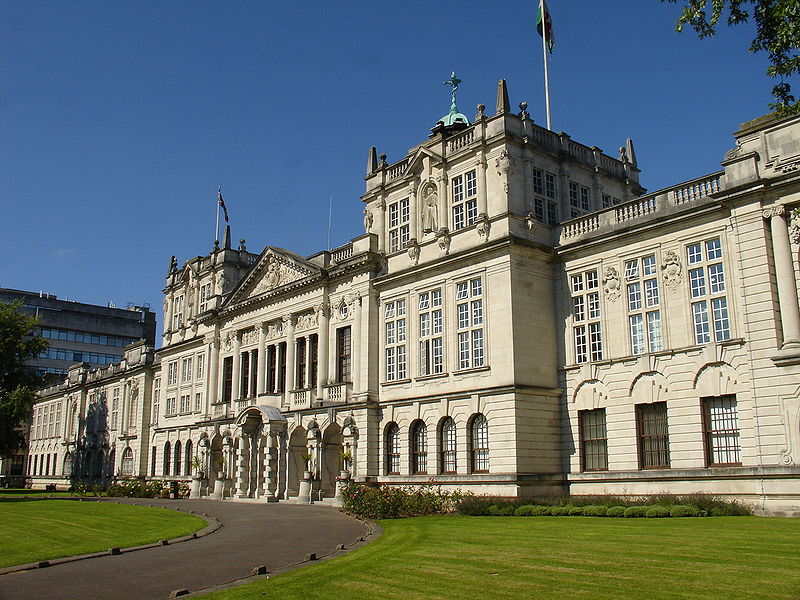Calvin Jones calls for an institution to accelerate innovation, in the form of a Future Generations Lab for Wales.
Bran’s could bring soldiers back to life. Drynwch the Giant had one that could distinguish cowards from the brave (useless of course in modern Wales, where everyone is positively beserk). And Ceridwen’s bequeathed poetic inspiration and wisdom (albeit the latter only after a long gestation and requiring very careful digestion).
Cauldrons are less visible in today’s Wales than they are in the Mabinogion. Wisdom, inspiration and rebirth are also in short supply; it has been a long time since we were at the forefront of global, or even UK ideas and innovation, when Swansea saw the invention of the hydrogen fuel cell, and Dowlais the first commercial application of the Bessemer process.
This is a significant problem because Wales is a small place with big ideas. Those ideas are encapsulated, for better or worse, in the Wellbeing of Future Generations (Wales) Act 2015 – that ugly, lovely 46-pager that is both endlessly infuriating and burdensome, yet at the same time widely understood as a clear distillation of both where Wales wants to go, and the sort of stuff it needs to do to get there. If we are to deliver on the Act – to be healthier, more equal, more interesting; a higher wellbeing and responsible place – we need to be completely different to Wales today. And we won’t get there without putting some rubber on the wheels of these big notions.
Bicycle wheels, obvs.
The problem
Wales, however, is bereft of practical, actionable ideas – at least ones that change us, let alone the world. For years (decades, generations, centuries) we have lagged on all the metrics that measure innovation – and not just relative to the innovative furnaces of the industrial Midlands, Japan, London or the US West Coast, but to the common-or-garden UK or European region. I have long argued there is little local fault in this, of people or government.
Wales has no statutory innovation agency or approach. Public sector Innovation activity is thus necessarily spread across myriad public bodies. It is everyone’s second or third job, when no-one has the time to do their first.
Wales has been economically peripheral since the days of its first legal recognition under Henry VIII; a provider of wool, meat, wood, and labour; of bits-of-England’s-kings, but no capital and few ideas. South Wales coal was carried on Welsh backs but on English rails, and the period since has seen this model embedded. Our largest private sector companies (with limited exceptions) deliver for export, or for local markets with products and processes developed at global scale. Private sector R&D here has been, and continues to be, pitiful. Those we educate to a high standard – including those most likely to be future entrepreneurs and innovators – leave in large numbers. Even where we do uncover gems, the lure of larger and more prosperous markets, of agglomeration and buzz, drag them off. There is a reason why Julien McDonald doesn’t have a dress shop on Merthyr High Street.
Meanwhile, the public sector can do little better. The British state bequeathed us the DVLA and tax offices, unlikely to spur the high value activities – directly and in wider clusters – that arise from public defence and science spending. The devolution settlement, meanwhile, denies the Welsh Government – and by extension the entire public sector – the key tools needed for impactful innovation – incentive, capabilities, and resources. Our Government can’t even borrow against future income, nor plan for more than a year.
Discussions and debates that drive Wales forward.
Join Wales’ leading independent think tank.
Such structural dysfunction makes innovation – by anyone – difficult, and that required for systems transformation, I suggest, effectively impossible. Wales has no statutory innovation agency or approach. Public sector Innovation activity is thus necessarily spread across myriad public bodies (as the 2023 Wales Innovates strategy demonstrates). It is everyone’s second or third job, when no-one has the time to do their first. What good practice emerges is, as Professor Kevin Morgan always says, a bad traveller.
Meanwhile in the interstices between academia and government, institutions like NESTA Cymru and the Wales Centre for Public Policy ask, and sometimes answer, interesting policy and future-oriented questions. More recently, new organisations have entered the fray – for example, the North Star Transition Labs of Wales and the Wye/Usk, and the Wales Net Zero 2035 challenge group. Most of these organisations are however constrained by remit, resource, and a lack of long-term, assured embeddedness in Wales’ polity. They answer those questions set by today’s government or today’s funders. And there is (as far as one can see) limited ability for others to cast across the raft of projects, programmes, reports and recommendations to work out what it all means in total.
Impactful, long-term innovation needs an impactful and long-term home – a new cauldron – Y Pair – of inspiration.
The result of all this is a lack of holism, integration, and long-termism in innovation activity in Wales (of course this is true of everywhere else, but everywhere else doesn’t make the promises of the Future Generations Act). The further result is that we don’t know in any detail where we actually want to go. We have no long-term, demand-and-supply-integrated energy strategy for Wales; no food strategy; no health strategy; no housing strategy or detailed national plan; no way to value or plan the use of land. We don’t know what the people and land are capable of, now or potentially. We know what’s wrong, but we have no sense of the systems – or sets of interrelated systems – that might make it right.
And if we don’t know where we’re going… How do we get there?
A Solution: The Future Generations Lab
Place-impactful innovation (responsible innovation; mission-oriented innovation; innovation in the public purpose; futures thinking; call it what you will) cannot exist within the current regional system. Let’s face it, even if a Welsh Government was able to uncover a cunning plan that would, say, optimise our sea- and landscape’s contribution to objectives across energy, recreation and wellbeing, biodiversity, and safe, healthy and low-carbon local food, would it feel… comfortable plonking that plan in its upcoming manifesto?
No. Impactful, long-term innovation needs an impactful and long-term home – a new cauldron – Y Pair – of inspiration. Evidenced, science-based inspiration, pulled together by a rotating cast of as-close-to-neutral experts as we can find, with one, central task: to imagine a Wales that fulfils our own dreams. Indeed, to imagine multiple, potential future Waleses. Perhaps one where our ambitions are delivered with white-heat technology, reams of offshore wind and community nuclear for everyone, precision agriculture, money-spinning carbon offsets, and AI everywhere. And one where modest ambition in terms of well-spread material prosperity is supported by a low throughput and circular economy, strong public services and a higher proportion of local dependence on the essentials. But perhaps fewer holidays in the Balearics and just the one streaming service…
A multiplicity of scenarios will be important because we live in a society, not a technology (although who wouldn’t swap it all for Tron?). Science (might) tell us what the limits of possibility are, constantly refining the pictures it paints as new technology emerges and the impacts of the climate, ecological and inequality emergencies unfold, but only people can decide what future to want and what path to take – what sort of world they would like to live in. And crucially, as Jared Diamond points out, what they are prepared to give up.
Robust debate and agenda-setting research.
Support Wales’ leading independent think tank.
What would a Future Generations Lab, Y Pair Dyfodol, look like in practice? I would argue that the first lesson from the existing FG Act is that it must be enshrined in Welsh statute – a new ‘Futures Act’ guaranteeing that we will not take our eye off this ball in the next Senedd, or the one after. And we should learn from the institutional complexities and resultant processification of the 2015 Act to make this Act a good one. The current Government might argue that there is no legislative time – but what could possibly be more important than imagining our future? And what other Senedd Act has the potential to make all future Senedd Acts better?
Secondly, there must be resource. Financial, of course. Imagine a Wales where each of the public Bodies under the remit of the current Act were top-sliced, say, let’s be ambitious, 0.025% of their budgets (i.e. by one 4,000th). That’s £5m per annum right there. For illustration, a 0.1% levy on Housing Associations would be another million smackers. And in other places, private sector players have been prepared to help fund such activities – with no influence over research components or outcomes – because they are looking for long term certainty, for example in servicing future infrastructure investment.
Written down like this, money… really doesn’t seem like an issue, does it?
As well as financial resource, human resource is key. Indeed, I may even countenance an office cat. This means allowing – encouraging – secondments from across the Welsh public, third, academic and private sectors, and geographically far beyond. It is about incorporating all voices (but fetishizing none). And of course, with an internal structure that encourages openness, inter-disciplinarity (no – the creation of new disciplines), a broad understanding of ‘evidence’, and a requirement to make outputs relevant, actionable and understandable, not just by the likes of those possibly reading this piece, but… by actual real people.
A last point here. The final thing that Y Pair Dyfodol needs, is to be left alone. We have a Wellbeing of Future Generations Act that is very clear on our ends, and makes some strong statements on our means. That’s enough. Let the boffins crack on as they will in terms of what to do and how to do it (save for the gentle ministrations perhaps of Audit Wales). But with clear milestones and rubrics for reporting, at which stage the socio-technical bunfight begins.
Calvin, you say, when does this all end? And of course, the answer is, it doesn’t – any more than The Foundation closed its doors and gave up its lease in Terminus City because Prof. Hari Seldon thought the work was done and an emeritus role was calling. Our Future Generations Lab would become a statement piece for a properly sustainable Wales. One that says we look to understand our world and our place in it, and seek to respond to this knowledge respectfully and well.
Conclusion: Tomorrow’s World, Today?
Cauldrons are funny things. If you look at their importance in mythology, the story is… pretty much a Celtic one. A very different focus from the Norse hammer, Mjölnir, crafted for Loki by the dwarves Brokkr and Eitri, or the Forge of Hephaestus from where came Achilles’ armour and Eros’ bow and arrows. Unlike crucibles, cauldrons are nourishing and, not irrelevant to a world that needs a 180° turnaround, tended largely by women. Being a romantic at heart, I would like to think this mythological focus reflects something differently Celtic, differently Welsh.
My medieval-analytical-linguistic chops are insufficient to judge whether these cauldrons became, over time the source for stories of the Holy Grail – and I am not suggesting a new innovation lab could be quite so transformative. But it does seem that our special institutional and legal structure here in Wales provides us the opportunity, means and incentive to go much further than others in developing an approach to innovation, and to the future(s), that is holistic; long-term; naturally, helplessly, climate-, nature- and wellbeing-aware; and deeply bespoke – both place based and place oriented.
I’m not quite sure what’s stopping us.
All articles published on the welsh agenda are subject to IWA’s disclaimer. If you want to support our work tackling Wales’ key challenges, consider becoming a member.





